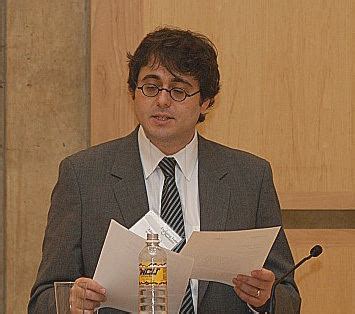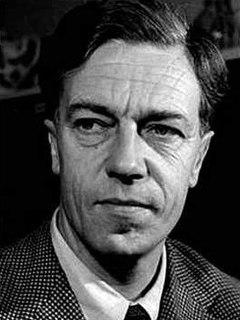A Quote by John Dryden
Imagination in a poet is a faculty so wild and lawless that, like a high ranging spaniel, it must have clogs tied to it, lest it outrun the judgment. The great easiness of blank verse renders the poet too luxuriant. He is tempted to say many things which might better be omitted, or, at least shut up in fewer words.
Related Quotes
One of the surest tests of the superiority or inferiority of a poet is the way in which a poet borrows. Immature poets imitate mature poets steal bad poets deface what they take and good poets make it into something better or at least something different. The good poet welds his theft into a whole of feeling which is unique utterly different than that from which it is torn the bad poet throws it into something which has no cohesion. A good poet will usually borrow from authors remote in time or alien in language or diverse in interest.
One of the appeals of William Carlos Williams to me is that he was many different kinds of poet. He tried out many different forms in his own way of, more or less, formlessness. He was also a poet who could be - he was a love poet, he was a poet of the natural order and he was also a political poet.
In England especially, poetry's woven into the background fabric of society. And in Ireland, it's in the foreground. The place of the poet in Irish society is enormous. If you say you're a poet in Ireland, you'd better know what you're doing, because the standard and the expectations are incredibly high.
Words too familiar, or too remote, defeat the purpose of a poet. From those sounds which we hear on small or on coarse occasions, we do not easily receive strong impressions, or delightful images; and words to which we are nearly strangers, whenever they occur, draw that attention on themselves which they should transmit to other things.
It is unwise to equate scientific activity with what we call reason, poetic activity with what we call imagination. Without the imaginative leap from facts to generalisation, no theoretic discovery in science is made. The poet, on the other hand, must not imagine but reason--that is to say, he must exercise a great deal of consciously directed thought in the selection and rejection of his data: there is a technical logic, a poetic reasoning in his choice of the words, rhythms and images by which a poem's coherence is achieved.
I was a poet too; but modern taste
Is so refined and delicate and chaste,
That verse, whatever fire the fancy warms,
Without a creamy smoothness has no charms.
Thus, all success depending on an ear,
And thinking I might purchase it too dear,
If sentiment were sacrific'd to sound,
And truth cut short to make a period round,
I judg'd a man of sense could scarce do worse
Than caper in the morris-dance of verse.
There is this tendency to think that if you could only find the magic way, then you could become a poet. "Tell me how to become a poet. Tell me what to do." . . . What makes you a poet is a gift for language, an ability to see into the heart of things, and an ability to deal with important unconscious material. When all these things come together, you're a poet. But there isn't one little gimmick that makes you a poet. There isn't any formula for it.






































